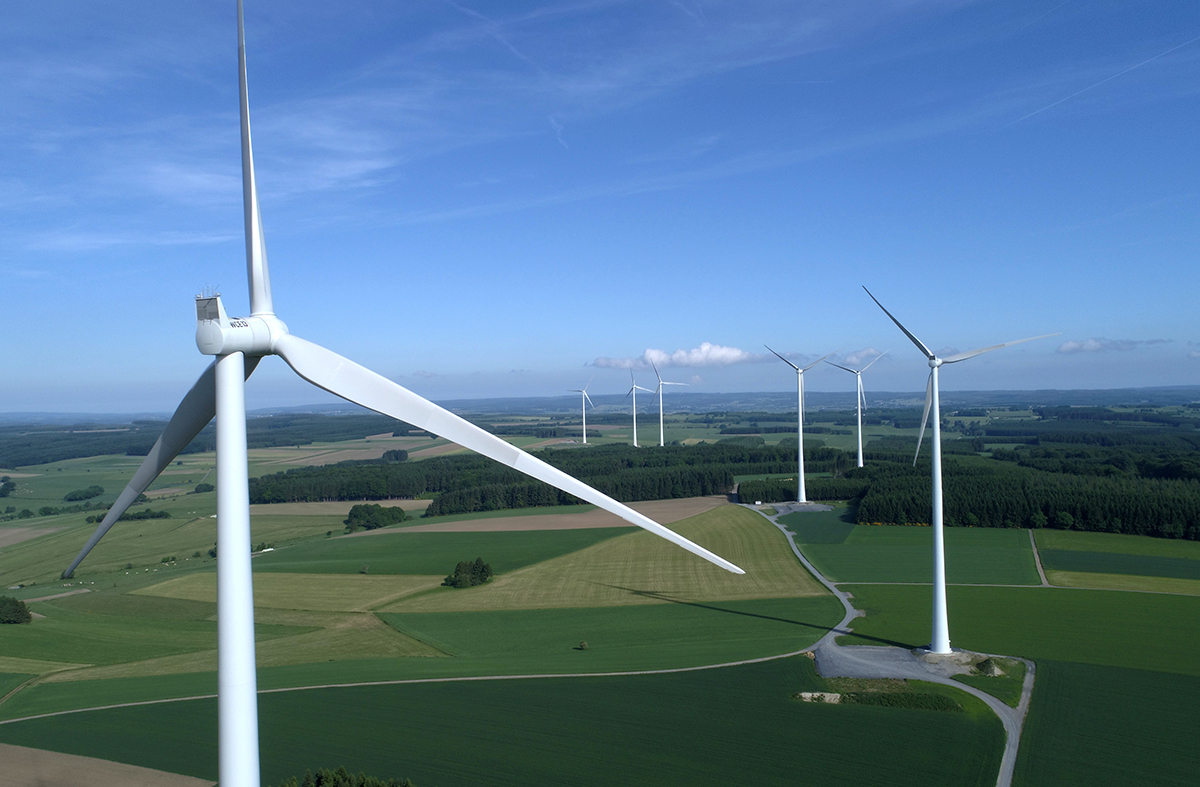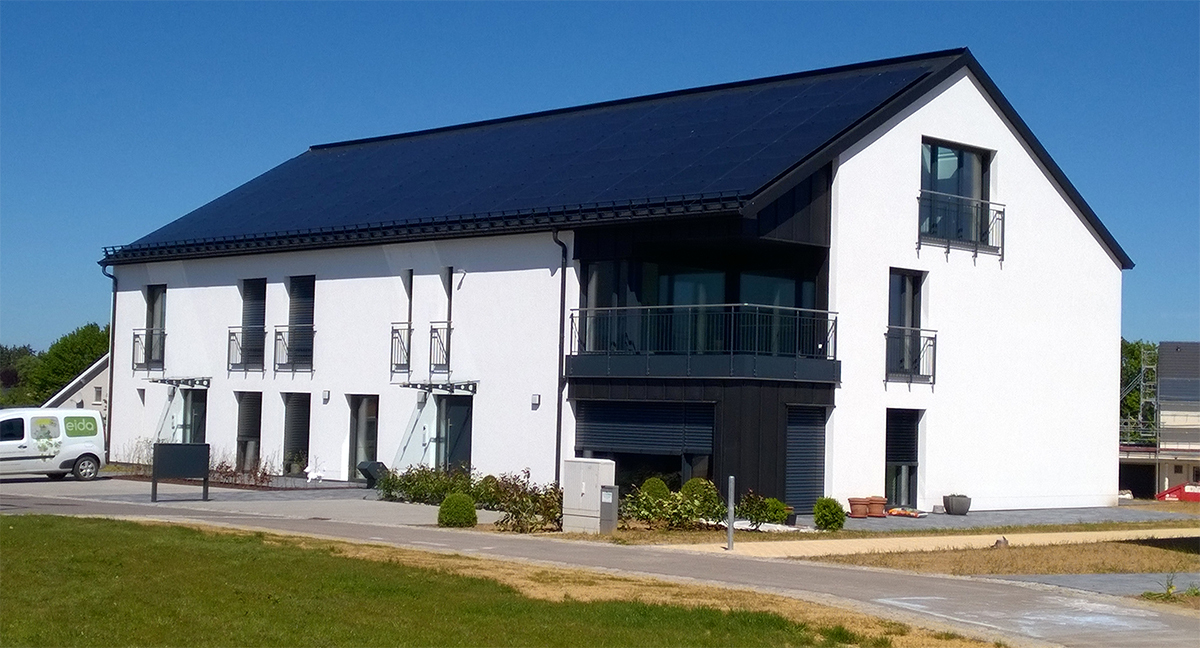Stories
October success story: Pioneering community-led energy innovation in Luxembourg
Community energy is key to action on the climate crisis. It can empower people, boost local economies, and reinvigorate communities. Community-led initiatives play an important role in the transition towards a 100% renewable and just energy future. Success stories of community energy projects can be found all over Europe. At REScoop.eu we want to highlight these stories to further accelerate the movement towards a cleaner and democratic system.
This month, we travel to Luxembourg to unveil the inspiring story of Energy Revolt, a pioneering energy cooperative that continually seeks innovation and has become the country’s first cooperative supplier.
A cooperative with an innovative vision
Energy cooperatives can engage in different activities within the energy market, including energy production, energy supply, home renovations, electric mobility, district heating… Energy Revolt, a small but visionary energy cooperative founded in Luxembourg in 2015, has been at the forefront of the energy transition, adapting its portfolio over time to new members' needs and societal changes. Initiated by seven citizens and three small companies, Energy Revolt emerged as a tool to fund renewable energy projects.
Their first project was a collective heating network fuelled by wood chips, providing heat to a church, four houses and a residential building. In the subsequent project, Energy Revolt partnered with a municipality facing financial constraints in developing a heating network. The cooperative stepped in, committing to build and manage the network for 12 years before transferring it back to the municipality.

Energy Revolt has consequently pursued innovative business models. For example, they committed to providing energy to three private houses for 20 years by integrating the supply costs into the building's purchase price, enabling these homes to operate independently from the grid, powered by a centralised 30 kWp solar plant and a battery. Paul Kauten, founder and board member of Energy Revolt, acknowledges the project’s risks, but notes its favourable financial results, with 30% of the produced energy being sold back to the grid.
The first cooperative supplier in Luxembourg
Energy Revolt's latest activity is entering the energy supply market. This has been a monumental challenge for a cooperative with about 130 members and no employees, but they are on the cusp of hiring their first employee as soon as a stable source of income is secured.
After over a year of dedicated work, they successfully launched their commercial offer in June this year. Paul outlines their vision for it.
“Our goal is to match the sold energy to our production to be as independent as possible from external market dynamics. We plan to start small and gradually increase our production and supply volumes to gain complete control over the process. We also intend to encourage our clients to change their load profiles, adapting them to our production.”
Energy Revolt currently boasts a production capacity of 1,600 kW, enough for supplying around 400 dwellings, sourced from their own installations and power purchase agreements with 30 local producers. This independence from the energy market allows them to offer fixed prices based on what they pay to local producers. In just the first four months, without any advertising, they secured over 50 clients, marking a promising start in line with their growth strategy.

An energy sharing platform
Simultaneously, Energy Revolt is actively developing e-community, a digital energy sharing platform. Created in collaboration with other cooperatives, non-profit organizations, and a renewable energy consultancy, this platform allows citizens to share renewable energy without the need for complex legal structures. Energy Revolt is already using it to share energy surpluses, with long-term plans for more energy communities to join the platform.
e-community operates as a cooperative society, ensuring that the common good takes priority over economic gains and that sustainable energy production rests in the hands of citizens.

Energy sharing holds great potential for decentralising and democratising the energy system. However, it needs to be regulated to ensure that consumers control the means of self-production and pay the lowest price possible. While e-community’s cooperative character already guarantees this, regulatory measures are essential to protect this model from profit-driven interests. This regulatory framework for energy sharing is currently being discussed at the European level in the context of the Electricity Market Design (EMD) reform. REScoop.eu’s policy advisor Stavroula Pappa emphasises the democratic potential of energy sharing when properly regulated.
“It should contribute to putting citizens at the core of the energy system, where they can take ownership and benefit from cheaper renewable energy. As such, energy sharing should be safeguarded for smaller actors in a way that not just gives them a choice, but encourages them to exercise this choice.”
A comprehensive range of activities
In addition to these activities, Energy Revolt also offers financing services to its members. For instance, they offer prefinancing for individual PV installations, allowing members to pay it back through energy bill savings and income from excess energy sold to the grid. Members could also repay when they receive a public subsidy for their installation - the Luxembourgish government has a programme to fund 62.5% of the installation of solar panels in private houses but it takes up to 12 months to receive the grant, which creates a barrier for many citizens.
They also offer a similar model for prefinancing heat pumps, providing lower interest rates than traditional banks, benefiting both members and the cooperative. Heat pumps make members' consumer profiles more flexible, which facilitates the supply activity.

To enhance the balance between production and consumption, Energy Revolt is exploring collective storage systems, such as a project with the Luxembourg Institute of Science and Technology to build community batteries for a local energy community in the commune of Beckerich. Paul provides further details about this project.
“The batteries, managed by a software developed by the technology institute, will provide ancillary and flexibility services to the distribution system operator. This will offer the cooperative insights into how to optimise the balance between thermal storage and battery capacity.”
The diversification of activities forms the cornerstone of Energy Revolt's growth strategy. In the upcoming years, Energy Revolt plans to further consolidate its supplier activity, acquire a hydropower plant and build a new wind project in Beckerich. Within a decade Paul envisions the cooperative as “the main actor in the field of citizen-driven renewable energy projects in Luxembourg”.